New faculty feature: Rebeka Sipma, M.D.
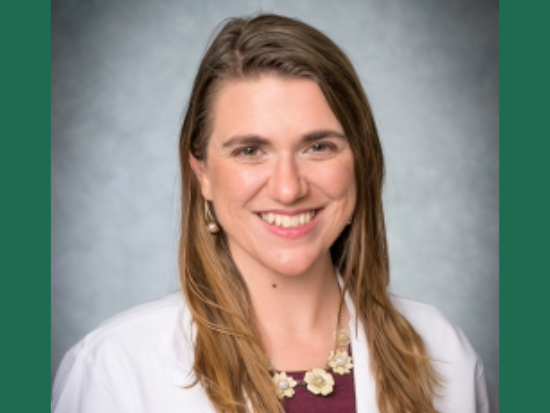 The UAB Department of Neurology welcomed Rebeka Sipma, M.D. to the faculty as an assistant professor in July 2024.
The UAB Department of Neurology welcomed Rebeka Sipma, M.D. to the faculty as an assistant professor in July 2024.
New faculty feature: Melissa J. Greenfield, Psy.D.
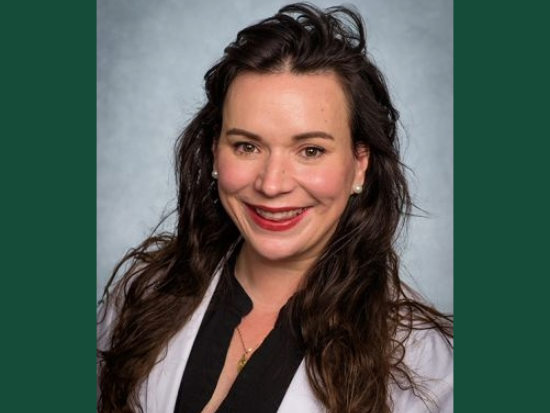 The UAB Department of Neurology welcomed Melissa J. Greenfield, Psy.D., to the faculty as an assistant professor in July 2024.
The UAB Department of Neurology welcomed Melissa J. Greenfield, Psy.D., to the faculty as an assistant professor in July 2024.
UAB Department of Neurology members honored at 2024 Service Awards Reception
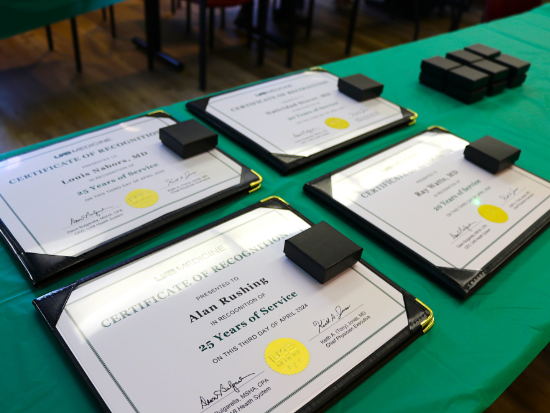 The UAB Department of Neurology honored department members for their years of service during a reception earlier this month. Honorees were recognized for 5, 10, 15, 20, 25, and 30 years of service. See the full list of names here.
The UAB Department of Neurology honored department members for their years of service during a reception earlier this month. Honorees were recognized for 5, 10, 15, 20, 25, and 30 years of service. See the full list of names here.
Certain department members, including Shirley Gibbs, Program Director II in the Division of Neuro-Oncology and Clerkship Coordinator; Sandi Mumfrey-Thomas, Clinical Program Manager II in the Division of Neuromuscular Disease; Burt Nabors, M.D., William Austin Brown Endowed Professor, Vice Chair for Research, and Director of the Division of Neuro-Oncology; and Alan Rushing, MSHA, Director of Administration and Finance, were recognized for exceptionally long periods of dedication and service to the department, with Gibbs and Mumfrey-Thomas celebrating 30 years and Nabors and Rushing celebrating 25 years.
Read moreLifestyle tips for healthy brain aging
 Maintaining brain health as we age can seem challenging in today's fast-paced world. However, making small, manageable changes in your daily routine can significantly enhance your cognitive well-being.
Maintaining brain health as we age can seem challenging in today's fast-paced world. However, making small, manageable changes in your daily routine can significantly enhance your cognitive well-being.
Division of Epilepsy moving to new space in Sparks Center
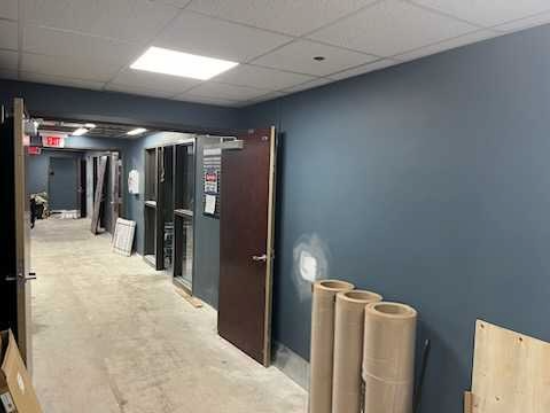 The Division of Epilepsy within the UAB Department of Neurology will soon be relocating to a newly renovated 12,000-square-foot space on the sixth floor of the UAB Sparks Center.
The Division of Epilepsy within the UAB Department of Neurology will soon be relocating to a newly renovated 12,000-square-foot space on the sixth floor of the UAB Sparks Center.
Currently, members of the Division of Epilepsy are housed in several locations, including the Civitan International Research Center and other floors in the Sparks Center. However, with the division's continued growth, the need for additional space has become necessary.
Read moreUAB Hospital ranks among top 50 neurology and neurosurgery hospitals in the country
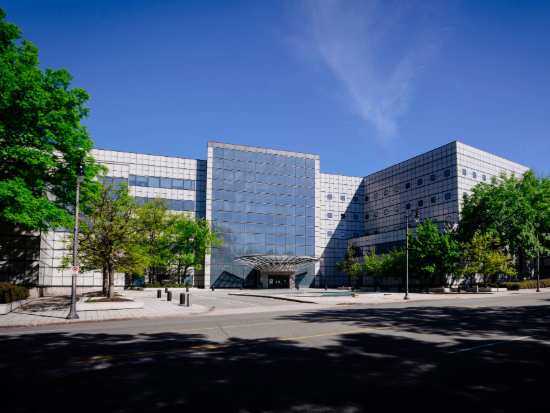 U.S. News & World Report has ranked UAB Hospital number 42 among the “Best Hospitals for Neurology & Neurosurgery” in the country out of a total of 4,855 hospitals evaluated.
U.S. News & World Report has ranked UAB Hospital number 42 among the “Best Hospitals for Neurology & Neurosurgery” in the country out of a total of 4,855 hospitals evaluated.
Living with ALS: A UAB patient’s journey
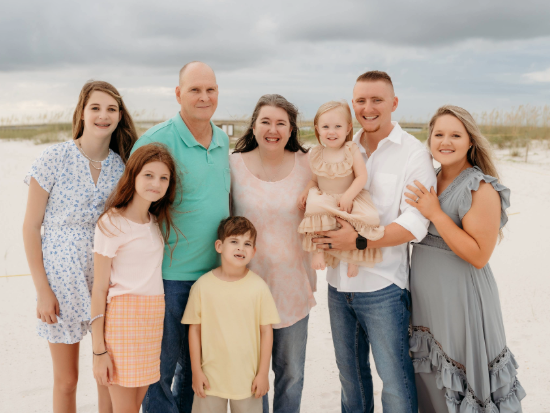 Navigating life with Amyotrophic Lateral Sclerosis (ALS) is a journey filled with challenges, resilience, and hope. Venus Richardson, who has been living with ALS for a decade, has faced profound milestones with unwavering courage.
Navigating life with Amyotrophic Lateral Sclerosis (ALS) is a journey filled with challenges, resilience, and hope. Venus Richardson, who has been living with ALS for a decade, has faced profound milestones with unwavering courage.
Her story of strength, with the support of the UAB ALS Clinic, offers a powerful testament to the ability to triumph over adversity.
Read moreUAB researchers receive award for advancements in tuberous sclerosis complex research
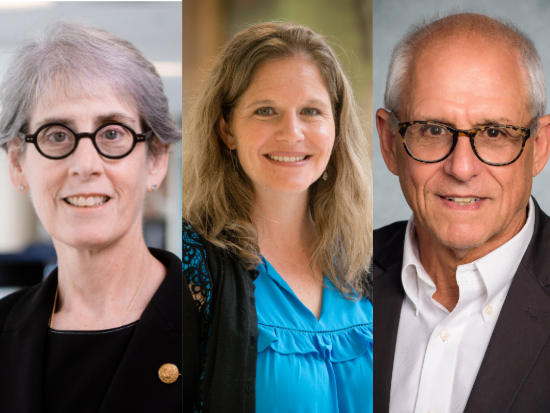 Tuberous sclerosis complex (TSC) is a genetic condition that leads to the development of benign tumors in multiple organs, including the brain, eyes, heart, kidneys, skin, and lungs. This condition can arise from inherited genetic factors or mutations occurring during conception or early embryonic development.
Tuberous sclerosis complex (TSC) is a genetic condition that leads to the development of benign tumors in multiple organs, including the brain, eyes, heart, kidneys, skin, and lungs. This condition can arise from inherited genetic factors or mutations occurring during conception or early embryonic development.
TSC is relatively rare, affecting approximately 1 in 6,000 newborns. Globally, nearly one million individuals live with this disorder, with an estimated 50,000 cases in the United States.
Read more'Like a bad memory:' UAB researchers advance understanding of potential method to prevent dyskinesia in Parkinson’s patients in new study
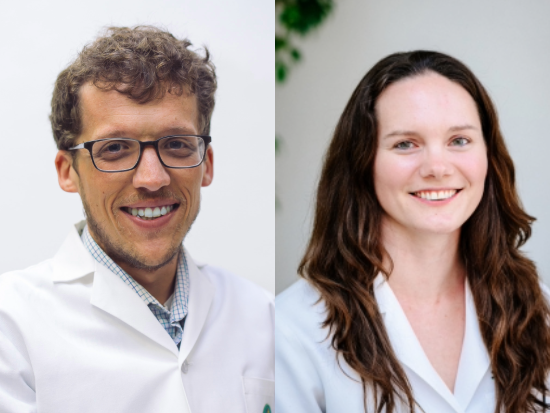 Common treatments for Parkinson’s disease, a neurodegenerative disorder that affects an estimated 1 million people in the U.S. and 10 million worldwide, address short-term symptoms. However, in the long term, these treatments can cause extensive problems for patients, namely in the form of uncontrollable movements and postures called dyskinesia.
Common treatments for Parkinson’s disease, a neurodegenerative disorder that affects an estimated 1 million people in the U.S. and 10 million worldwide, address short-term symptoms. However, in the long term, these treatments can cause extensive problems for patients, namely in the form of uncontrollable movements and postures called dyskinesia.
A recent study published by UAB researchers in the departments of Neurology and Pathology has revealed that approaching dyskinesia the same way the brain reacts to a “bad memory” could lead to a way to halt its progression and in turn, better treat the disease.
Read moreDepartment of Neurology graduating residents share future plans while reflecting on time at UAB
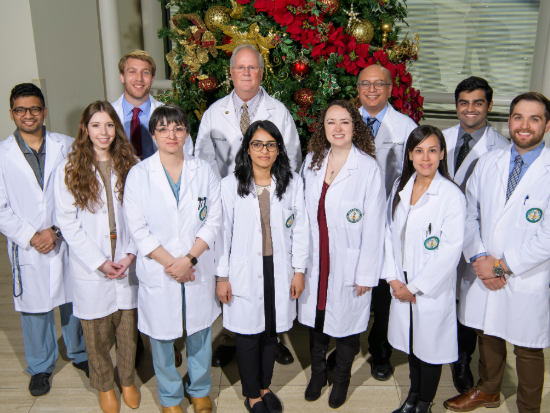 The UAB Department of Neurology is celebrating 10 residents who will have completed their residency within the department as of June 2024. Residents shared their plans for where their careers will take them next while also reflecting on their time in the Department’s residency program.
The UAB Department of Neurology is celebrating 10 residents who will have completed their residency within the department as of June 2024. Residents shared their plans for where their careers will take them next while also reflecting on their time in the Department’s residency program.
The Heersink School of Medicine communications team asked each resident, “What are your plans, careerwise, after graduation?” and “Reflecting back on your residency, what are your thoughts as you complete this portion of your training at UAB and move on to the next chapter?” Here are their responses.
Read moreBirmingham VA ALS Clinic named a Certified Treatment Center of Excellence by the ALS Association
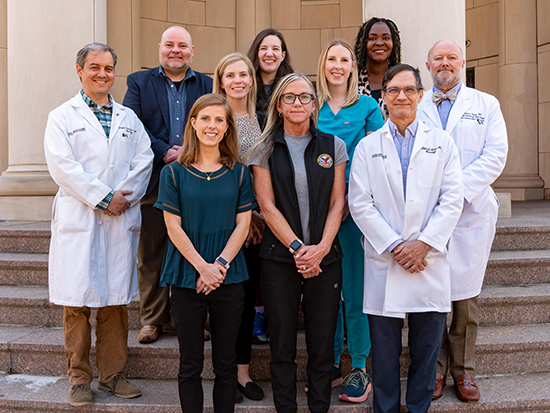 Front Row (left to right): Laurel Keller, Lindsey Rickles, Peter King, M.D.; Middle row (left to right): Joseph Daley, M.D., Ph.D., Carolyn Kesar, M.D., Caroline Johnson, Thomas Head, M.D.; Back row (left to right): Darren Kennemer, Sarah Alyce Williams, Kim RedwineThe Birmingham VA Medical Center Amyotrophic Lateral Sclerosis (ALS) Clinic has earned the designation of an ALS Association Certified Treatment Center of Excellence.
Front Row (left to right): Laurel Keller, Lindsey Rickles, Peter King, M.D.; Middle row (left to right): Joseph Daley, M.D., Ph.D., Carolyn Kesar, M.D., Caroline Johnson, Thomas Head, M.D.; Back row (left to right): Darren Kennemer, Sarah Alyce Williams, Kim RedwineThe Birmingham VA Medical Center Amyotrophic Lateral Sclerosis (ALS) Clinic has earned the designation of an ALS Association Certified Treatment Center of Excellence.
Rinker recipient of AUPN Faculty Leadership Award
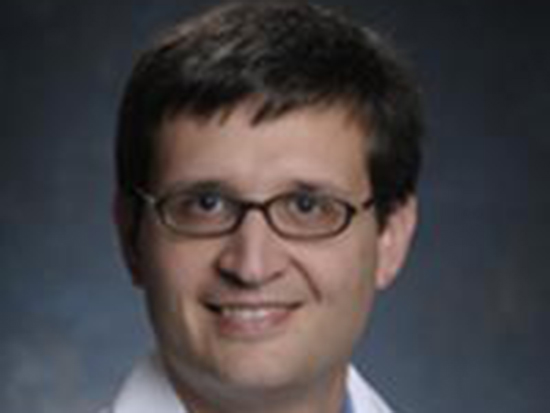 John Rinker II, M.D., associate professor in the UAB Department of Neurology, has been selected as a recipient of the Association of University Professors of Neurology (AUPN) Faculty Leadership Award.
John Rinker II, M.D., associate professor in the UAB Department of Neurology, has been selected as a recipient of the Association of University Professors of Neurology (AUPN) Faculty Leadership Award.
Neurocritical Care Fellowship program receives ACGME accreditation
 The Neurocritical Care Fellowship program within the UAB Department of Neurology received accreditation from the Accreditation Council for Graduate Medical Education (ACGME) on April 5, 2024. The ACGME oversees the vast majority of physician specialty and subspecialty training.
The Neurocritical Care Fellowship program within the UAB Department of Neurology received accreditation from the Accreditation Council for Graduate Medical Education (ACGME) on April 5, 2024. The ACGME oversees the vast majority of physician specialty and subspecialty training.
UAB ALS Clinic continues expansion of research, patient care with state-funded support
 When. Drs. Mohamed Kazamel and Nan Jiang took the helm of the UAB ALS Clinic in 2021, their goal to provide comprehensive care to patients with amyotrophic lateral sclerosis (ALS) in one clinical setting came to fruition. Thanks to the support of state funding, the clinic was able to offer patients access to nine medical professionals in a single visit.
When. Drs. Mohamed Kazamel and Nan Jiang took the helm of the UAB ALS Clinic in 2021, their goal to provide comprehensive care to patients with amyotrophic lateral sclerosis (ALS) in one clinical setting came to fruition. Thanks to the support of state funding, the clinic was able to offer patients access to nine medical professionals in a single visit.
“It’s a multidisciplinary clinic, which offers extensive supportive care,” said Jiang, M.D., Ph.D., clinic co-director and associate professor in the UAB Department of Neurology.
Now, heading into year three of state-funded support with $750,000 awarded from the state budget for FY 2025, the ALS clinic has only strengthened its efforts to address patient well-being and bolster focused research efforts to combat this progressive neurological disease.
Read moreUAB recognizes Department of Neurology employees for years of service
 The annual UAB Service Awards honor employees who have made significant career commitments to UAB by recognizing them at each five-year milestone. The Department of Neurology is proud to honor the following employees for service milestones as of the conclusion of the 2023 calendar year.
The annual UAB Service Awards honor employees who have made significant career commitments to UAB by recognizing them at each five-year milestone. The Department of Neurology is proud to honor the following employees for service milestones as of the conclusion of the 2023 calendar year.
Raising awareness and promoting action against stroke at Strike Out Stroke on May 2
 In the United States, an estimated 800,000 individuals undergo a stroke annually. Of these, about 543,000 survive but frequently encounter varying degrees of disability, positioning stroke as the leading cause of adult disability in the nation and the fifth leading cause of death.
In the United States, an estimated 800,000 individuals undergo a stroke annually. Of these, about 543,000 survive but frequently encounter varying degrees of disability, positioning stroke as the leading cause of adult disability in the nation and the fifth leading cause of death.
Mohamed elected president of American Clinical MEG Society
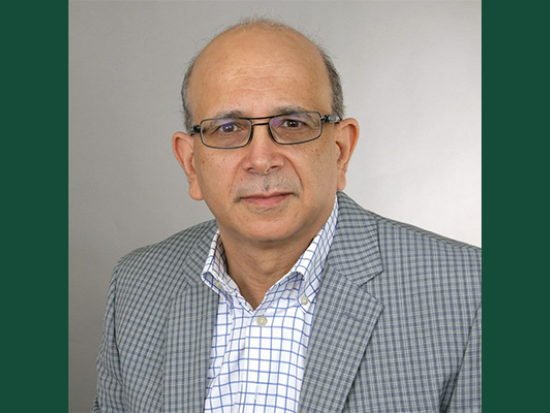 Ismail Mohamed, M.D., professor in the UAB Department of Pediatrics’ Division of Pediatric Neurology and associate professor in the UAB Department of Neurology, was recently elected president of the American Clinical Magnetoencephalography Society (ACMEGS) for 2024-2027.
Ismail Mohamed, M.D., professor in the UAB Department of Pediatrics’ Division of Pediatric Neurology and associate professor in the UAB Department of Neurology, was recently elected president of the American Clinical Magnetoencephalography Society (ACMEGS) for 2024-2027.
UAB Neurology Division of Movement Disorders launches spring Parkinson’s education events
 The UAB Department of Neurology’s Division of Movement Disorders seeks to provide vital education and support to individuals and families affected by Parkinson's disease (PD) with a series of events this spring.
The UAB Department of Neurology’s Division of Movement Disorders seeks to provide vital education and support to individuals and families affected by Parkinson's disease (PD) with a series of events this spring.
UAB Department of Neurology renews NIH StrokeBelt StrokeNet Award
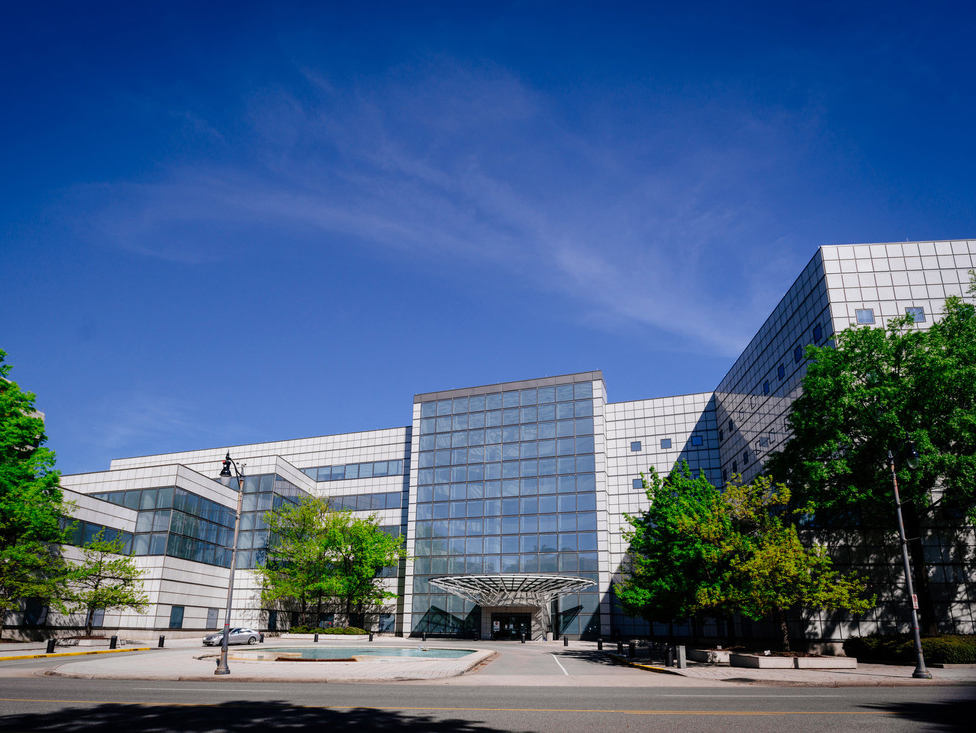 The UAB Department of Neurology has successfully renewed the National Institutes of Health (NIH) StrokeNet award, securing its participation in the national StrokeNet clinical trials network until the end of 2028.
The UAB Department of Neurology has successfully renewed the National Institutes of Health (NIH) StrokeNet award, securing its participation in the national StrokeNet clinical trials network until the end of 2028.
2 neurology divisions, 1 center, 1 institute moving to new UAB Brain Aging and Memory Hub
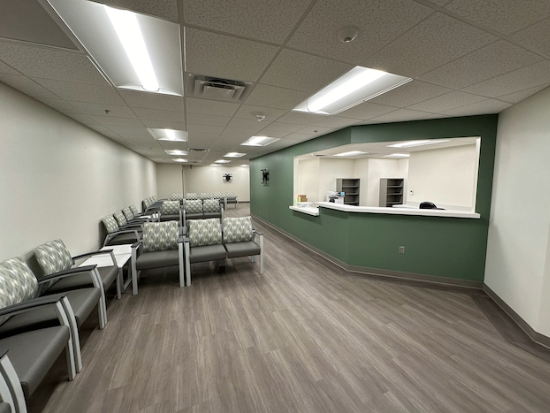 A project born from a mission to serve more memory disorders patients with the most cutting-edge care options, the new UAB Brain Aging and Memory Hub will be opening its doors on the fifth floor of Callahan Eye Hospital this month.
A project born from a mission to serve more memory disorders patients with the most cutting-edge care options, the new UAB Brain Aging and Memory Hub will be opening its doors on the fifth floor of Callahan Eye Hospital this month.